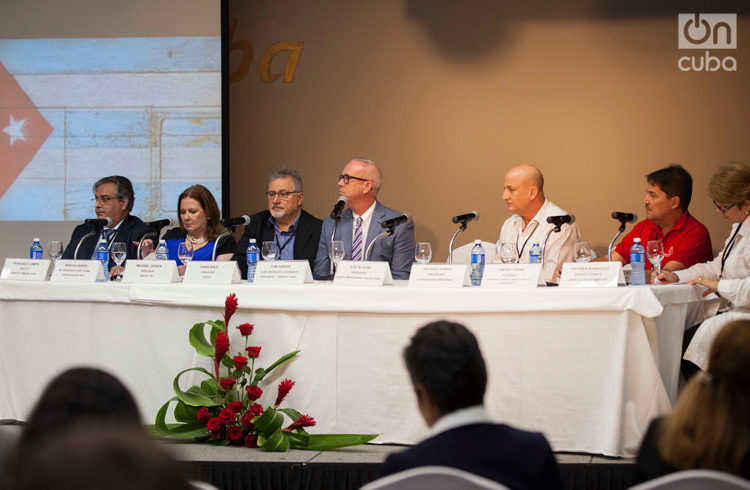Legal, safe and hospitable were the most repeated adjectives to define Cuba as a tourist destination during a meeting of U.S. companies with the media in Havana.
Cuba Media Day brought together in the Meliá Cohiba Hotel some 20 U.S. travel companies and organizations, among them airlines, cruise line companies and tour operators, and the opinion of their representatives was unanimous: traveling to Cuba does not represent a danger for Americans.
The event, promoted by insightCuba, with a long experience in the organization of trips to the island, backed the visits despite the Trump administration’s new regulations and the travel warning issued by the Department of State as a consequence of the alleged acoustic attacks against U.S. diplomats in Havana.
For Tom Popper, president of insightCuba, there are no reasons for the warning. Popper, who chaired the meeting’s main panel, recalled that according to an Associated Press report the FBI, after an exhaustive investigation, had not found proof of the attacks alleged by the Trump government.
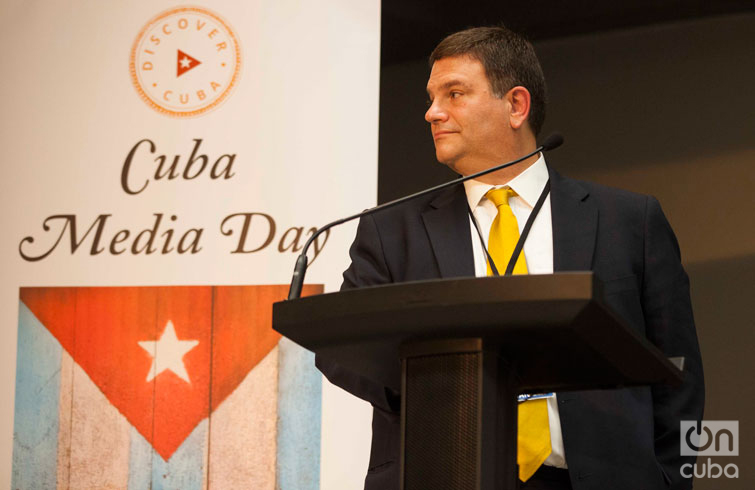
Moreover, Popper celebrated that Cuba had received this January 18 the Excellences Award as one of the world’s safest destinations at the Madrid International Tourism Fair (FITUR) and emphasized on the legality of visits by his compatriots.
“U.S. travelers can continue visiting Cuba legally in almost all the ways in which they previously could. Under the new regulations, the 12 travel categories are still standing and Americans can continue traveling in the popular ‘people-to-people’ category through a company authorized for this type of trips,” he commented.
Meanwhile, lawyer Lindsey Frank, from the RBSKL Firm, explained that while the recent restrictions prevent individual travel in the “people-to-people” category, Americans can continue visiting the island individually in the “support to the Cuban people” category and continue staying in private homes and in many hotels not included on the list as banned by his country’s government.
“It is false that Americans cannot stay in any hotel in Cuba,” he specified.
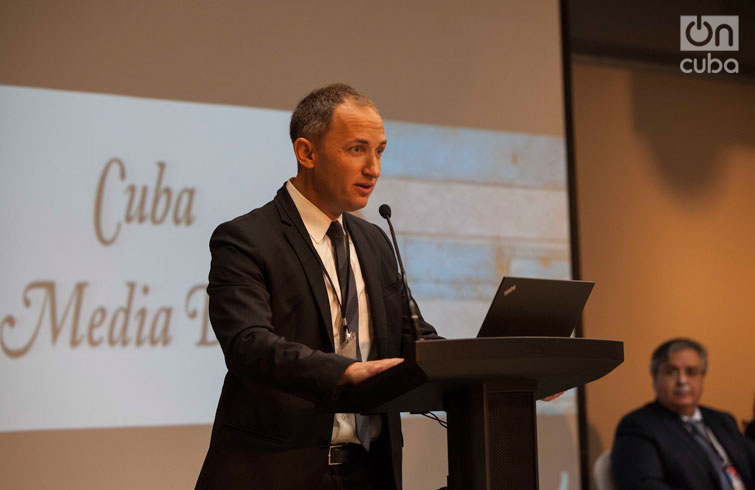
Perception vs reality
The debate between what is really established and the Americans’ perception of the new regulations about Cuba is, in the opinion of the companies and organizations meeting at the event, the great challenge of the moment.
“Almost nothing has changed with the announcements,” affirmed to OnCuba Michael Goren, president of the IST Group. “The principal problem is that Americans don’t fully understand the new regulations, and faced by this confusion many say: I don’t know what’s happening, but I better go somewhere else. To change that way of thinking we have to make persons understand what the reality is.”
“It is necessary to carry out a strong publicity campaign to explain that traveling to Cuba is legal and, more importantly, that it is safe to visit any place throughout the island and exchange with Cubans. This is a genial country and very hospitable for Americans,” he estimated.
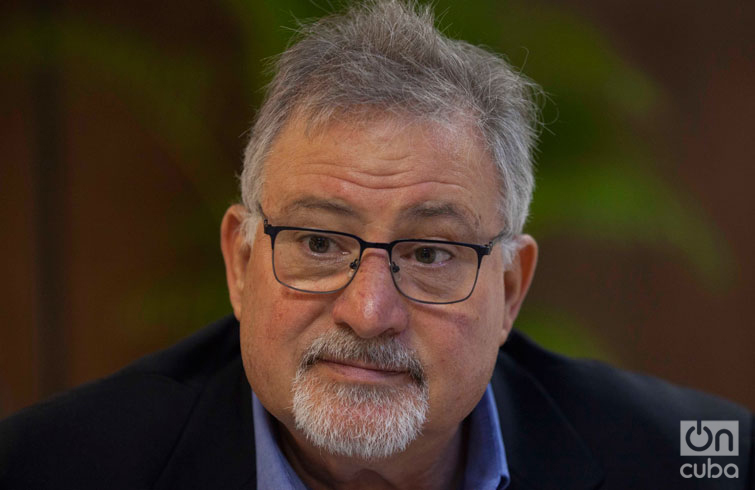
Terry Dale, president and CEO of the United States Tour Operators Association (USTOA), agrees that communication is crucial. Thus the message must be direct and unquestionable: “Cuba is open to business, it is a safe, legal, amazing place, and all those of us who visit it are ambassadors of those virtues and we must explain it to the world. We have to be diligent because the Trump government’s warning is unnecessary.”
To support this message, the figures are the best proof. In 2017 Cuba received close to 4.7 million tourists, with a 95 percent level of satisfaction. Travelers who repeat their visits to the island represent a 39.6 percent.
The number of U.S. visitors experienced a notable growth in relation to the previous year: from close to 285,000 in 2016 to more than 619,000 twelve months later. If the more than 453 Cuban Americans are added, the number of visitors from the United States surpasses the 1.17 million.
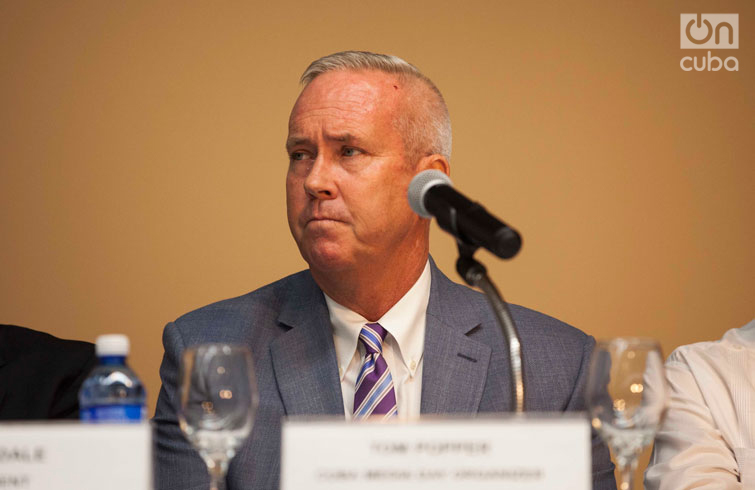
Safety at risk?
The Nuevo Herald newspaper reported that since last September 29, 19 U.S. citizens have reported symptoms similar to those of the U.S. diplomats in Havana, according to a spokeswoman from the Department of State’s Bureau for Western Hemisphere Affairs.
The news report doesn’t specify who the allegedly affected are, when they were in Cuba, or where they stayed. Neither does it provide an opinion on the case by U.S. physicians and researchers.
All this, in addition to the information being published on the same day that the meeting of travel companies and organizations was programmed in Havana, generates unavoidable suspicions.
The spokeswoman reiterated that her government has no conclusive answers about what happened and that the investigation continues, while she continued “urging U.S. citizens to reconsider their trip to Cuba.”
However, none of the participants in Cuba Media Day at the Meliá Cohiba has reports of any of their travelers being affected.
“I have no news of any symptom or alleged attack among those who have arrived in Cuba with us,” said Tom Popper, an opinion backed by the rest of those present.
For Hugo Cancio, president and CEO of Fuego Enterprises, “the reasoning behind the travel to Cuba warning is not based on reality.”
“Cuba is one the safest countries on the planet to travel with two possible ‘serious,’ ‘dangerous’ effects for those visiting it. One is that by visiting it, the island seduces them so much that they decide to live here forever. The other is that they get intoxicated with the humility, naturalness, essence of Cubans. This in my opinion is the only danger my country represents,” said Cancio, who like a large part of the Cuban-American community defends retaking the road of dialogue and bilateral relations.
Meanwhile, Francisco Camps, representative of the host Meliá, backs Cuba’s safety based on his proven experience on the island: “Our 27 years of constant presence in Cuba endorses us to say that this is a safe country in all aspects.”
“In a hotel like the Meliá Cohiba, in 2017 Americans represented more than 24 percent of the stays and they had a perception about the quality with indices that were even higher than the average. A very important data is that 97.8 percent of those clients answered they would again be with us. Therefore, a client who wants to return is a client that feels satisfied and that feels safe,” he said in an exclusive for our site.
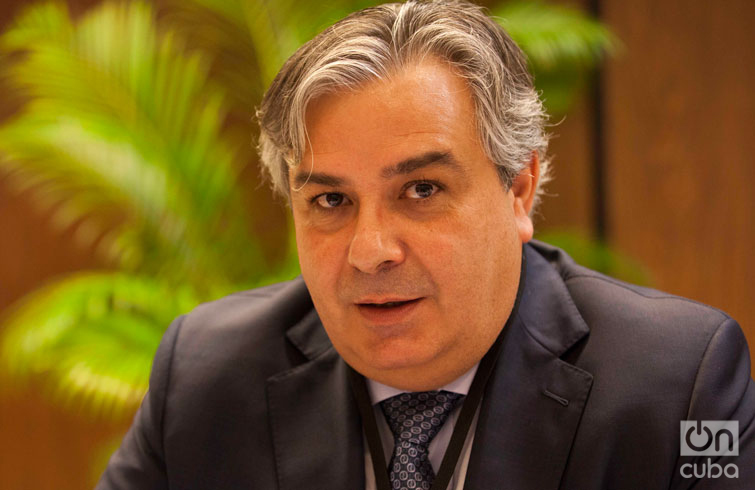
Francisco Camps. Photo: Claudio Pelaez Sordo.
Also backed by its experience, American Airlines supports Cuba as a destination. “No other U.S. airline has more experience here than us. We started flying 26 years ago with charter flights, and two years ago we started the regular flights, first to the provinces and later to Havana,” commented Martha Pantin, the company’s representative.
Ms. Pantin explained to OnCuba that although the airline has made changes in its flights to the island, they are adjustments according to the market. While they have made reductions outside Havana, they wish to expand the trips to the Cuban capital, especially from Miami, “a connection hub with more than 350 daily flights which provides us with the opportunity to connect with Cuba persons from the rest of the United States and the world.”
“The flights between the United States and Cuba, especially between Miami and Havana, continue being an important market and we always back our company’s destinations,” she affirmed.
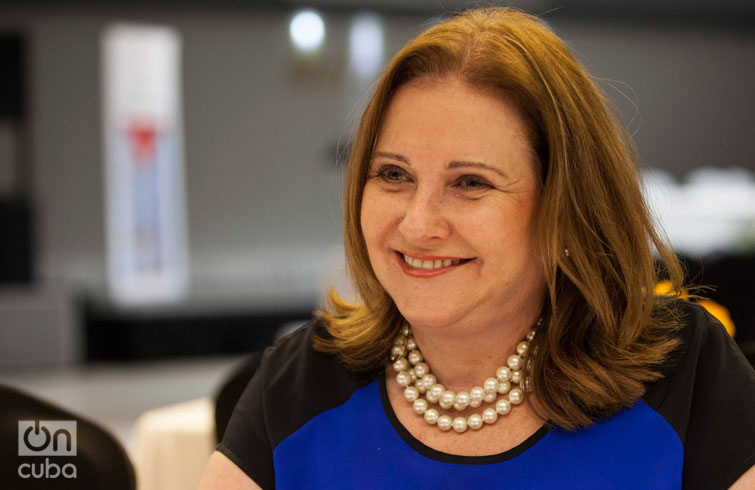
Cuba optimistic
The backing of the U.S. companies and tour operators is generating optimism for the Cuban authorities, after the damages caused by Hurricane Irma in the tourist sector and the U.S. government regulations on travel to the island.
“Cuba is still a country that is as safe as before,” affirmed José Bisbé, president of the Viajes Cuba Group of the Cuban Ministry of Tourism. “The Trump government’s measures have a fundamentally political foundation, and when they are analyzed in depth one confirms they have a limited reach and there still exists a great many possibilities of legally traveling.”
“The feedback we have about our work with the Americas indicates that the level of satisfaction is very high, even higher than the country’s average, with very high repeat indices of persons who come with their families, which is a very clear sign of our safety,” said Bisbé, for whom this event “is going to be very important to show the public at large the conditions of the Cuban tourist industry today and how we are ready to receive more Americans.”
Like his U.S. counterparts, the president of the Viajes Cuba Group considers key the role of the media in the face of the current situation. “Cuba in general has carried the cross of being demonized by the major media, but to the extent that more media know of the safety and quality of our tourism, media that in addition are here on the island, that are based here or came for this event, we believe that reality can be demonstrated more for the U.S. public,” he said.
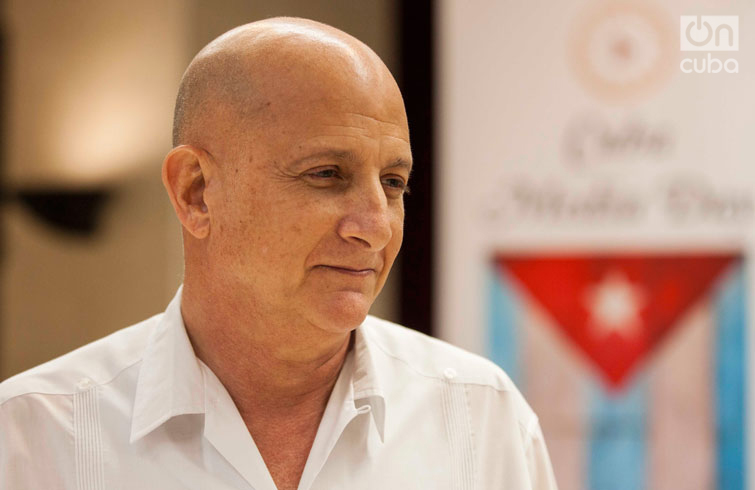
Bisbé did not give an estimate of how many Americans could visit Cuba in 2018, a year in which the island hopes to reach 5 million tourists. But he affirmed that his Ministry is working on several specific lines for the U.S. public.
Together with communication actions like those of the Cuba Media Day and “in all possible channels,” the Cuban authorities are assessing “participating in fairs and roadshow activities in the very United States.” Also fundamental is the quality of the services “so that the clients who come feel increasingly more satisfied,” as well as “supporting modalities with a great impact on the U.S. public, like the cruises.”
“We are searching on how to diversify them, how to expand them, how to increase the destinations, which guarantees that a great amount of clients visit Cuba and comment about their experiences here,” said Bisbé about the cruise trips. “Moreover, we maintain excellent relations with our traditional partners in the United States and we are opening a great many new agencies, even outside of the traditional states like Florida and those on the East coast, and relations are being increased through different means, with the universities, with research centers.”
“All that is generating additional flows and persons with knowledge of our reality, and the sum total of these efforts makes us think of an optimistic future, of a fast recovery from the impact of these measures,” he concluded.
TN: Quotes by U.S. representatives were retranslated from the Spanish.

